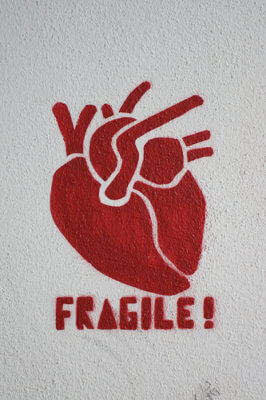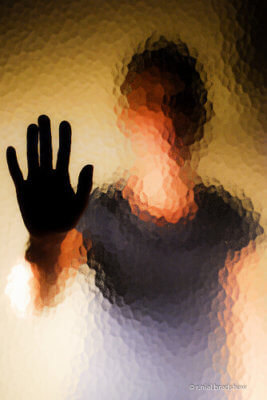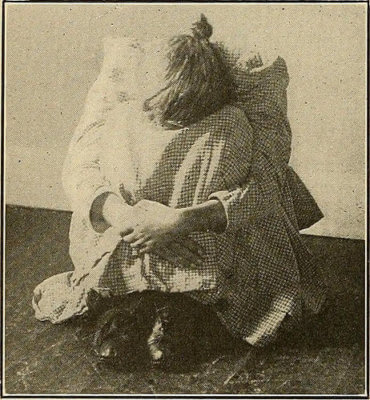What Does Feeling Vulnerable Mean? (Perhaps Not What You Think)
by Andrea M. Darcy
Have you always secretly believed that being emotionally vulnerable is a terrible idea?
For those of us who experienced childhood trauma (and sadly, that’s many of us), avoiding emotional vulnerability might have been a useful survival tactic. We just couldn’t bear to feel any more emotional pain, so we learned to dodge it.
But are those same ideas of vulnerability still serving you as an adult? Or is it time to re-assess your ideas around being emotionally vulnerable?
5 Myths about feeling vulnerable
See if you are telling yourself the following myths about feeling vulnerable.
1. I am vulnerable, I share about my life on Facebook.
Sharing and vulnerability are two separate things. Sharing means offering facts and opinions.
Vulnerability means being authentic about how you are feeling, and truthful about who you are and how things you have experienced have affected you.
Oversharing can be a way to avoid being vulnerable. Giving exact details about a breakup and turning it into a comedy, for example, can be a way to avoid showing how hurt you really are.
2. Being vulnerable makes you miserable and I want to feel happy.

By: spaztacular
Letting ourselves feel happy is often a way to feel more vulnerable, not less. For example, if we dare to love someone, we are vulnerable to the pain of being rejected.
So happy or sad, vulnerability happens. Avoiding it in an effort to feel good doesn’t work.
What is true here is that vulnerability without discernment can indeed lead to feeling miserable. Sharing your deepest self with someone you know is emotionally abusive or emotionally unavailable can veer into self-abuse over healthy vulnerability, or can be a sign of borderline personality disorder.
3. I don’t have time for all that emotional stuff.
There are all sorts of excuses we can come up with to avoid being emotionally vulnerable – we don’t have the time, it’s not safe, it’s for other people, but not us. But these excuses are a way of trying to avoid feelings we are scared of or ashamed about.
Researcher and author Brené Brown, perhaps the most famous commentator today on vulnerability, writes that “we associate vulnerability with emotions we want to avoid such as fear, shame, and uncertainty. Yet we too often lose sight of the fact that vulnerability is also the birthplace of joy, belonging, creativity, authenticity, and love.” And aren’t those worth making time for?
4. I need to be strong to survive, and vulnerability is weakness.
Being emotionally vulnerable undoubtedly has its risks. It means letting someone see who we really are, knowing that this means we risk being rejected or feeling abandoned.
It often means risking triggering old memories and unprocessed childhood pain, too.

By: r. nial bradshaw
But on the other hand, refusing to be vulnerable can be more of a tired pattern of pushing others away and hiding emotionally over real personal strength. The payoff can be loneliness, repressed anger, shame, inner rage, others not trusting us, and, eventually, depression.
Summary — while avoiding being vulnerable might see us ‘survive’, it definitely does not see us thrive.
5. I am just not made to feel vulnerable.
If you’ve shut off your emotions for long enough, you can convince yourself you are flawed and ‘made of stone’.
But we all feel vulnerable, unless we have narcissistic personality disorder or are a sociopath.
Feeling vulnerable would be part of the brain’s survival design, triggering the fight of flight response which once protected us from dangers like wild animals. And research shows that some of us are genetically more inclined to feel vulnerable than others, even.
So you are wired to feel vulnerable. Even if you repress it publicly and only let yourself feel it alone, late at night.
So what does feeling vulnerable mean then, really?
It means you are human. And it means you are being asked to make a decision. Is this really a time to protect yourself? Are you engaging with the wrong person to risk judgement from? Then steer clear.
Or, is this a time to be brave, and to step towards personal growth? To risk rejection and perhaps by doing so gaining a stronger sense of self, a feeling of being connected to others, and a sense of freedom to create the life that feels right for you, personally.
Would you like help in allowing yourself to be more emotionally vulnerable and connected to others? Harley Therapy connects you with experienced and friendly counsellors and therapists across the UK. Live elsewhere? Online Therapy helps wherever you are.
 Andrea M. Darcy is a health and wellbeing writer as well as mentor who often writes about trauma, relationships, and ADHD. Find her on Instgram @am_darcy
Andrea M. Darcy is a health and wellbeing writer as well as mentor who often writes about trauma, relationships, and ADHD. Find her on Instgram @am_darcy






I continually feel vulnerable, which is very much linked in with a diagnosis of C-PTSD. No therapy has worked, over a 22 year period, neither has any medication, either self administered or prescribed by a medical professional. Nothing removes the relentless sensations of anxiety. I have been exposed to various therapeutic models yet nothing has changed, or shifted, and the patterns of stress remain. Unabaited.